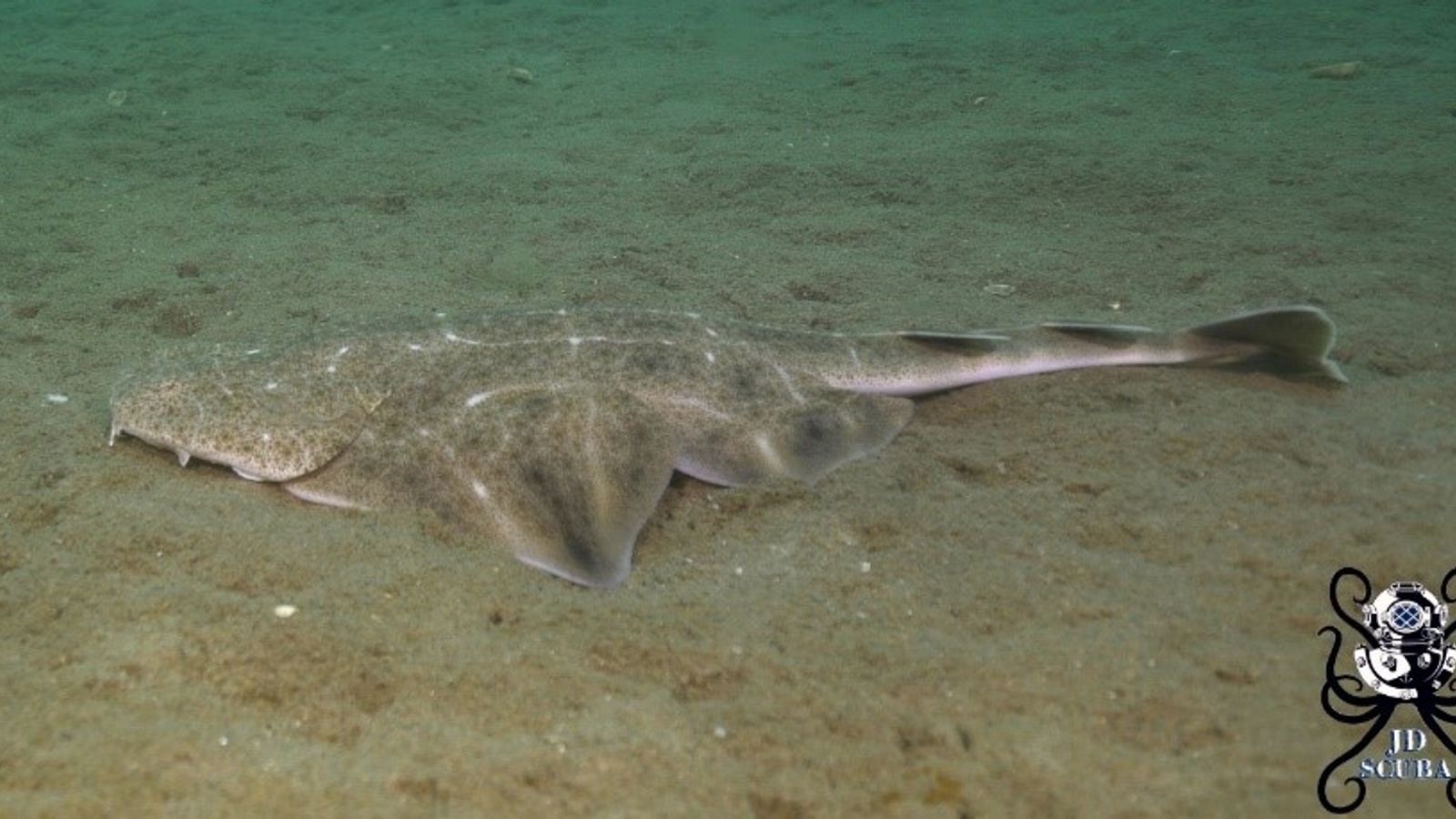Scientists have recorded footage of a juvenile Angelshark in the UK for the first time, offering hope that the critically endangered species is breeding in Welsh waters.
Angelsharks are true sharks but have unusually flat bodies and fins, resembling rays. Although generally docile they have been known to bite divers that approach them.
The species was once considered abundant in the Atlantic Ocean but has been classified as critically endangered since 2010.
Marine biologist Jake Davies, who took the snap, said: “I’ve always kept an eye out for Angelsharks during dives, having worked to better understand the species for the last four years.
“I couldn’t believe it when I saw the Angelshark, and what was really exciting was that it was a juvenile, just 30cm in length – providing further evidence that the species is giving birth in this area.
“It was incredible to watch and film it swimming, burying into the sand and then using its camouflage to ambush prey. This footage is far beyond what we thought would be possible to capture in Wales.”
The range of the species has declined dramatically over the past 50 years, but a collaborative Angel Shark Project between Natural Resources Wales (NRW) and the Zoological Society of London (ZSL) is working with local communities to gather records of the fish.
Joanna Barker of ZSL said: “This footage supports our hypothesis that Angelsharks give birth in waters around Wales.
“The size (30cm) and white markings on the dorsal fin edges show the Angelshark was born this year, confirming we have an active breeding population in Wales.
“This new footage is extremely useful to inform our conservation efforts for this species, especially as Wales hosts one of the last Angelshark populations in the northern most part of their range.”
It is a criminal offence to target or disturb this species, which is protected under both the Wildlife and Countryside Act and the Environment (Wales) Act.
Ben Wray, marine ecologist and project manager at NRW added: “Little is known about the status, ecology or location of important habitats for Angelsharks in Wales.
“Only 4% of Angelshark records gathered by [the Angel Shark Project] to date are of juveniles, so this footage is extremely important
“It builds our understanding of Angelshark ecology, including that they use both sand and mixed habitats and that the juveniles prey on gobies.
“We will use this evidence to help plan future research and discover more about this rare species in Wales,” Mr Wray added.






















